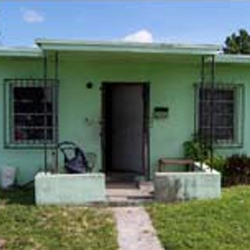Hard money lenders, are individuals with a great deal of money available for investments. Depending on your investor, some may have limited funds while others have deep pockets.
Based on their own personal criteria, they lend this money, typically on a short term basis to investors who use it for a variety of purposes, primarily buying and repairing properties in distress.
As you develop your relationships with hard moneylenders and prove to them that you treat your investments as a legitimate business, you will be able to negotiate more favorable terms. It is a good idea to learn the requirements of and develop relationships with 2-3 hard moneylenders.
Hard moneylenders will serve as a great resource as you begin your Real Estate investment business, especially if you have limited funds and/or credit blemishes. Having a good hard money lender will help you become more profitable in shorter amounts of time. You will be able to take advantage of deals and act quickly if you need to. You will also be able to refer them to potential wholesale customers in order to help them secure financing and guarantee that your deals close correctly and, more importantly, quickly.
Typical terms for hard money
The terms for a hard money loan will vary from lender to lender, will depend on the investor’s experience, the length of relationship the investor has with the lender, and depending on the lender, sometimes even the credit score of the borrower. However, if the hard money lender does look at the credit score of the borrower, he/she will typically be much more lenient because the property will serve as the collateral
Loan to Value (LTV), Interest, and Points
Generally speaking, a hard money lender will lend between 50%-75% of the after-repaired value of a home with interest rates ranging from 12-18% for anywhere between 6 months to 5 years. In addition, they will charge between 1-10 points as an upfront financing fee.
Payment Schedule
Some lenders will charge interest while some will amortize the loans, though more often than not, for the short term loans, it is easier accounting for the lender to collect interest only payments.
Repair Money
Some lenders will lend repair money and others will not. Many times, this will ultimately depend on the LTV of the property. If you do find a lender that agrees to lend for repairs, frequently the money will be kept in an escrow account from which you draw as the work is completed. In rare instances, or after you have established a level of trust with the lender, he/she may allow you to leave the closing table with the funds
Closing Costs
Provided your Loan to Value (LTV) is within the lender’s requirements, you can often negotiate the closing costs to be wrapped into the loan.
Lending Criteria for Hard Money Lenders
Just as terms vary from lender to lender, so do the criteria. Each lender has his/her own preference with regard to areas in which they will lend and types of investors to whom they will lend.
As you begin to build your list of hard moneylenders, it is important to ask them what their criteria are:
• What is the typical Loan to Value you will lend on?
• Where do you find your comparable sales?
• Do you check credit? (If so, can I provide you with a recent copy of my report?)
• Do you require appraisals?
• Do you charge an inspection fee?
• Are there certain areas that you do not lend?
Property Value vs. Credit
Generally speaking, most hard moneylenders are more concerned with the property value than the credit of the investor. They simply want to know that if the investor defaults, they will take ownership of a piece of property from which they can recover their investment and possibly turn a profit themselves. Basically, the lender wants to feel secure in his/her investment.
Finding Hard Money Lenders
Hard money lenders are, in most cases, private individuals. They are not institutional lenders that must abide by a strict set of rules and guidelines.
This means that they can be extremely flexible, but also very tough at the same time.
More than likely, your local investor club will have several hard moneylenders advertising at each of the meetings. These are great places to meet these individuals, network, and build relationships.
In addition to your local investment clubs, you can find these types of funds in many different places. These lenders can be your doctors, attorneys, friends and even your neighbors. The better the relationship you have with the individual, the more favorable the rates and terms will be.
Try the following question, which we learned to ask from a friend and mentor:
“I know this isn’t for you, but do you happen to know anyone that might be interested in earning 12-15% return on their money secured by a first lien in Real Estate?”
You would be surprised at how often the very person that you are asking says “Yes, I am interested.” You are not asking directly, so the person does not feel threatened. In fact, he/she may even be more inclined to lend you money since you were not asking directly.


